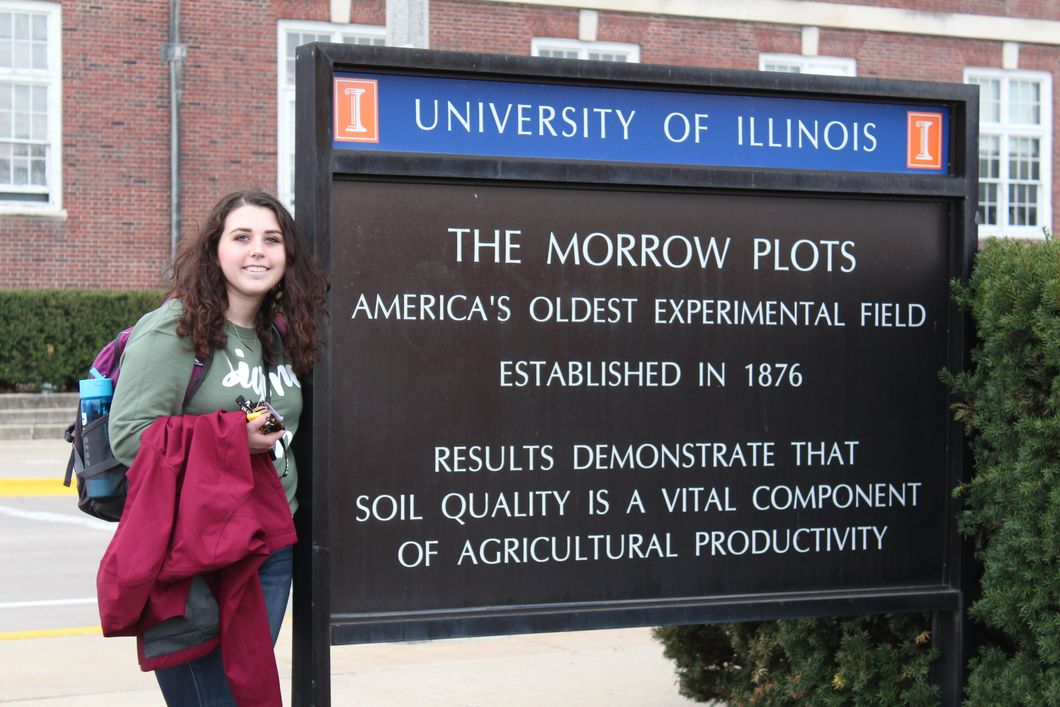If you were asked "what is a land-grant university?" would you be able to answer that question without Googling the term? If you were asked to describe agriculture, how would you describe the industry? If you aren't sure, you are not the only one. As time continues, there is a growing gap between the agriculture industry and its consumers all over the country, but especially on college campuses.
This may not seem like an issue at first glance, but farmers and consumers are three generations removed now. This means that there are more people than ever before that do not experience first hand where our food and clothes come from. It seemed like for a while people were not too concerned about what they were eating, but in today's world, our food is a hot topic of discussion. With buzzwords like "natural," "local," "GMO-free," and so many more being showcased on food packaging, advertisements, and food company branding. It is overwhelming and confusing, and with our modern technology, it is easy to fall into the trap of misleading information. Not everything on the internet is true, and it can be hard to tell what is true and what is false.
In college, we take several general education courses to broaden our horizons and become more well-rounded individuals; in fact, some are requirements to graduate. One way to reduce the broadening gap between agriculture and consumers is to have a general agriculture education requirement for all college students. In this class, they can learn the basics of agriculture, have opportunities to discuss big issues like food labeling, GMOs, pesticides, and so much more. It is a way to make sure that anyone, no matter your background, can understand the agriculture industry as a whole. Agriculture is not just farming (even though that is a huge part), but there is so much more you can do. Whether you want to be a scientist, engineer, teacher, or business person, there is a job in agriculture for you. There are major misconceptions about the agriculture industry, and I believe it is our jobs both as agriculturists and consumers to meet in the middle. We need to educate each other, be open-minded, and most importantly understand agriculture. We need to stop having battles over Facebook and start having real-life discussions with each other.
You may not see the importance right now, but agriculture touches every area of life. From the five dollar bill in your pocket to your granola bar you snack on, or even your favorite blanket you snuggle in during Netflix binge sessions. The growing gap between the agriculture industry and consumers is concerning, and it is important that now rather than later, we start bridging that gap. College campuses are the first step to fixing this problem, but it is also a way for our future to have a better understanding of what agriculture is.
I attend the University of Illinois, which is one of the original land-grant universities that Abraham Lincoln signed for as part of the Morrill Act in 1862. We have the Morrow Plots, which is the oldest experimental field in the United States and is among the oldest continuous corn plots in the entire world. How lucky are we to have this right on our quad? Furthermore, there are university farms less than a mile away from campus, and we have our own agriculture campus. Even though we have a rich history of agriculture, it doesn't seem to reach as wide as it should. It doesn't matter if you want to become a doctor, a graphic designer, or a music teacher. It doesn't matter if you only eat meat or if you don't eat any products made from animals. The more we overlook understanding agriculture, the larger this gap is going to be on college campuses, communities, and all over the world.

















